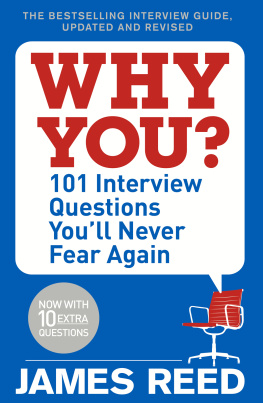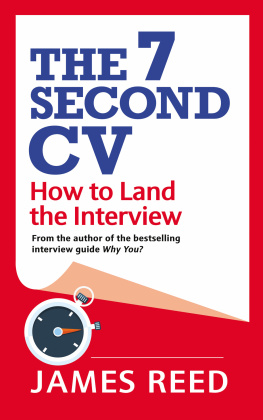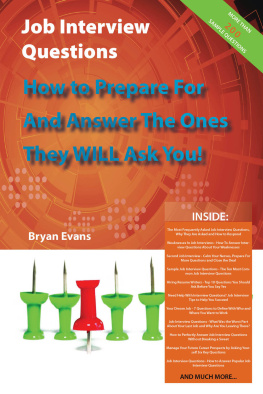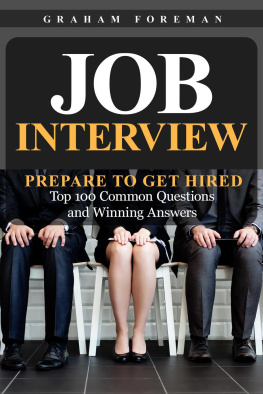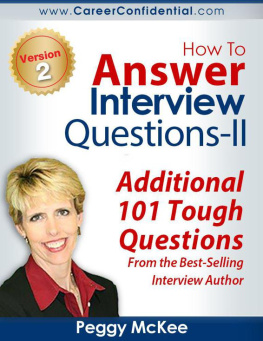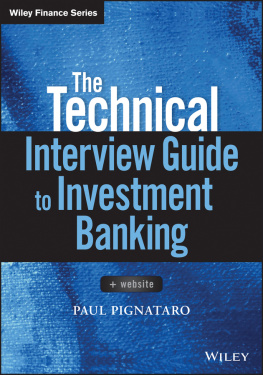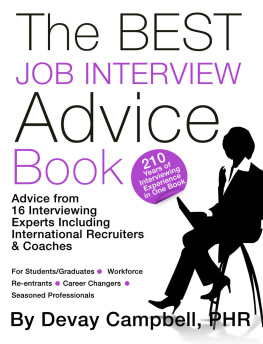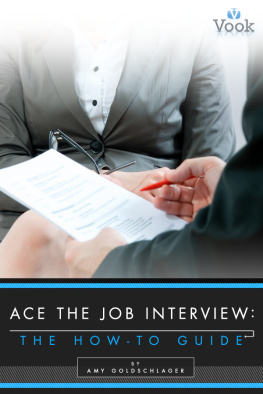WHY YOU?
James Reed is the Chairman of REED, the recruitment specialists. He first joined the company in 1992 after graduating from Harvard Business School; since then REED has more than quadrupled in size and reed.co.uk has become the number one job site in the UK and Europe. REED now receives more than 50 million job applications a year and has delivered over 100 programmes helping more than 140,000 long-term unemployed people back into work. James is co-author of Put Your Mindset to Work, winner of the Commuters Read Prize at the CMI Management Book Awards 2012. He is also a Fellow of the Chartered Institute of Personnel and Development (CIPD).
PRAISE FOR WHY YOU?:
Takes much of the fear out of preparing for a job interview Sunday Post
Amazon UKs fastest-selling new read on interview techniques City A.M.
From Amazon:
***** Got the job!
***** A must for all interviewees
***** Worth a permanent place on your bookshelf
***** Perfect preparation for any interview
***** Good for employers too!
***** I read this from cover to cover before an interview for a very much wanted job. I did all the exercises it recommend and I got the job!
***** If you are seriously after a job this is essential reading
***** Helped me get my current job!
***** Really useful, gives clear examples and well explained I got the job so must have been a good buy!
***** Helped me prepare perfectly for interview, giving me real questions that come up along with excellent tips for how to answer them. Wouldnt have got the job without this book
James Reed
WHY YOU?
101 Interview Questions
Youll Never Fear Again
PORTFOLIO PENGUIN
UK | USA | Canada | Ireland | Australia
India | New Zealand | South Africa
Portfolio Penguin is part of the Penguin Random House group of companies whose addresses can be found at global.penguinrandomhouse.com.
First published 2014
Reissued with a new bonus chapter in this edition 2017
Copyright James Reed, 2014, 2017
The moral right of the author has been asserted
Design by Ed Bettison
edward.bettison@mac.com
ISBN: 978-0-241-97022-5
For the moment
ONE
All in the Mind
Well, life all comes down to a few moments. This is one of them
Wall Street, 1987, 20th Century Fox
One moment
Can the path of a persons entire life come down to what they do in just one or two decisive moments? The guitarist Andy Summers certainly thinks so.
You might not recognize Summers name but youll know his work. Summers was one-third of The Police, one of the most successful rock bands of all time.
Maybe youre not a fan, but you would have to agree that Summers, in being a guitarist in a rock band, landed a job that many of us would love to have. His job took him to almost every country in the world. He did creative things all day. He met interesting people and devoted fans. He was paid a ton of money for doing something he loved, something that came naturally to him. Truly, great work if you can get it. So how did he get it?
He got it by boarding a London Tube train and sitting down at random next to a drummer named Stewart Copeland. People dont usually talk on the Tube, but for some reason those two struck up a conversation that day. It was a conversation in which they told each other what kind of music they wanted to make. Each convinced the other that he was sincere and suitable. They clicked. They formed a band. They met Sting. They went to work.
Take out that last bit about Sting and youve got a perfect description of what happens at a good job interview: two people talking from the heart about a common interest, each setting out what they have to offer. (Admittedly, this is different from the ritualized job interview that many of us are familiar with.)
When the time came for Summers to write his autobiography, he called it One Train Later, because if hed taken the next train along he wouldnt have met Copeland and none of his enchanted career would have happened. Clearly, it was one of those moments when the entire course of his life could have gone one way or another just as occurs in a job interview.
Maybe you feel that Summers didnt interview for his job, that he succeeded by having a skill (in his case, playing the guitar) and by honing that skill with hours of practice every day. Youd be right, but skills are never the full picture.
Its more accurate to say Summers was fully prepared when his moment of destiny presented itself. He was at a point in his life where he knew what he was good at, and could communicate it to a total stranger in a way that made him seem like the sort of person you would want around.
This is a book about how you can learn to do exactly the same thing.
Knowing your moment
All the evidence is that these moments of life-changing destiny are most likely to present themselves in the form of a job interview.
How you perform in that thirty-to-ninety-minute window will determine what you do for a living, which in turn will shape much of your time on Earth, including:
- What you do all day: Approximately one-third of your adult life is spent at work. If you dont enjoy your work, thats one-third of your existence hammered, with no refunds and no re-runs. (To put this into even sharper relief, half the remaining two-thirds of your adult life is spent asleep, or maybe lying awake at night thinking about work.)
- Where you live and what you see all day: Where we spend our limited time on this planet is determined largely by where we work, with 90 per cent of us living within an hour of our job. Your job interview is going to determine what you see out of the window all day, be it city skyline or sunrise over the Pacific at 35,000ft.
- Your income: When a really good PA can earn more than a junior pilot, who cares about sunrises?
- Your life partner: If you go to nightclubs hoping to find that special someone, statistically youll have more luck working behind the bar than on the dance floor. Nineteen per cent of us meet our spouses at work its the most common place for love to start, by far. And should you get lucky with a colleague, you can rejoice in the fact that divorce rates are lower than average among couples who meet at work, probably because they have a common interest.
- When youll die: Theres a good reason your life-assurance company asks what you do for a living. Its a proven fact that, whether youre a personal trainer or someone who sits down in an office all day, your health is subject to the physical impact of your job.
- Your social status: You are what you do. Of all the professions, it seems doctors and nurses get most of our admiration and trust. (Politicians and bankers, not so much.)
- Your personal happiness: Job satisfaction is, of course, hugely important. Interestingly, more than one study has shown that if you want to be happily employed you should pick up some scissors and learn to cut hair. Most hairdressing salon owners are happier in their work than any of their clients.

